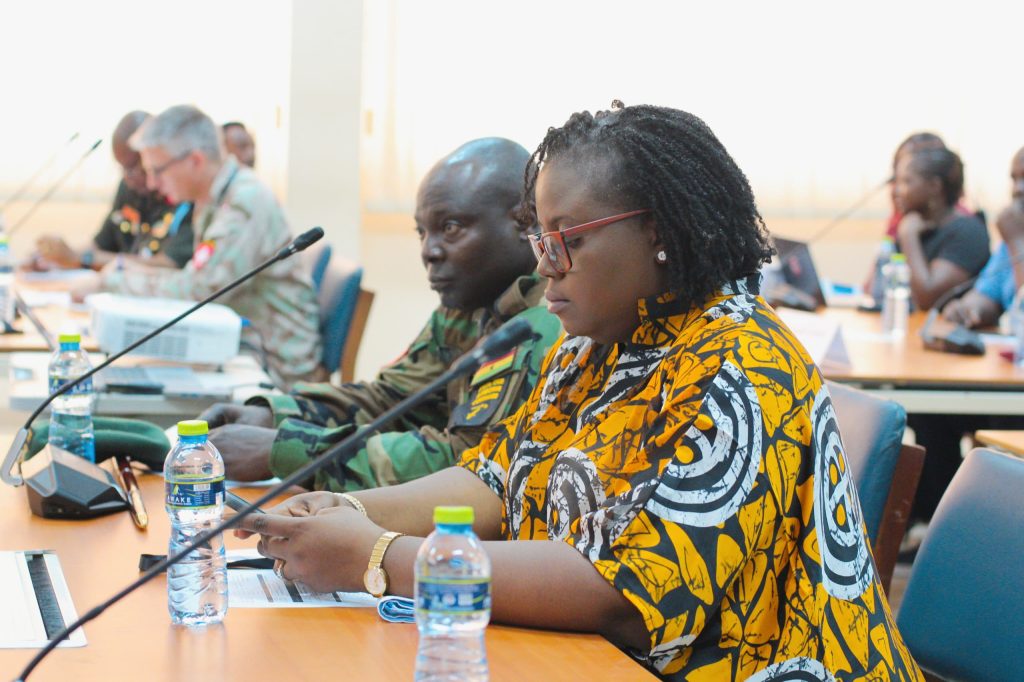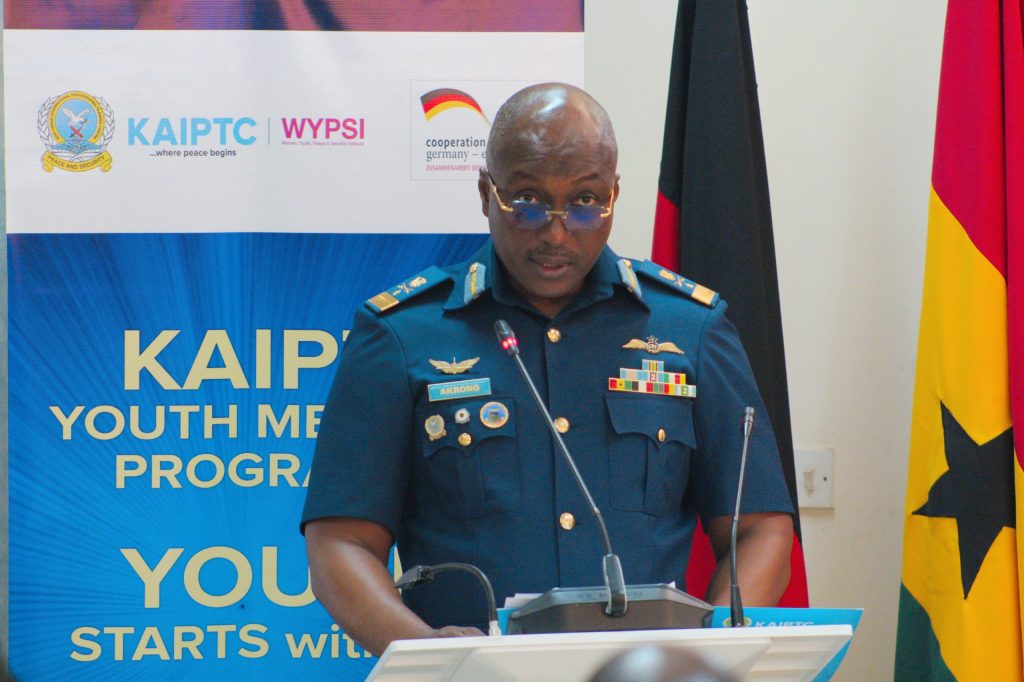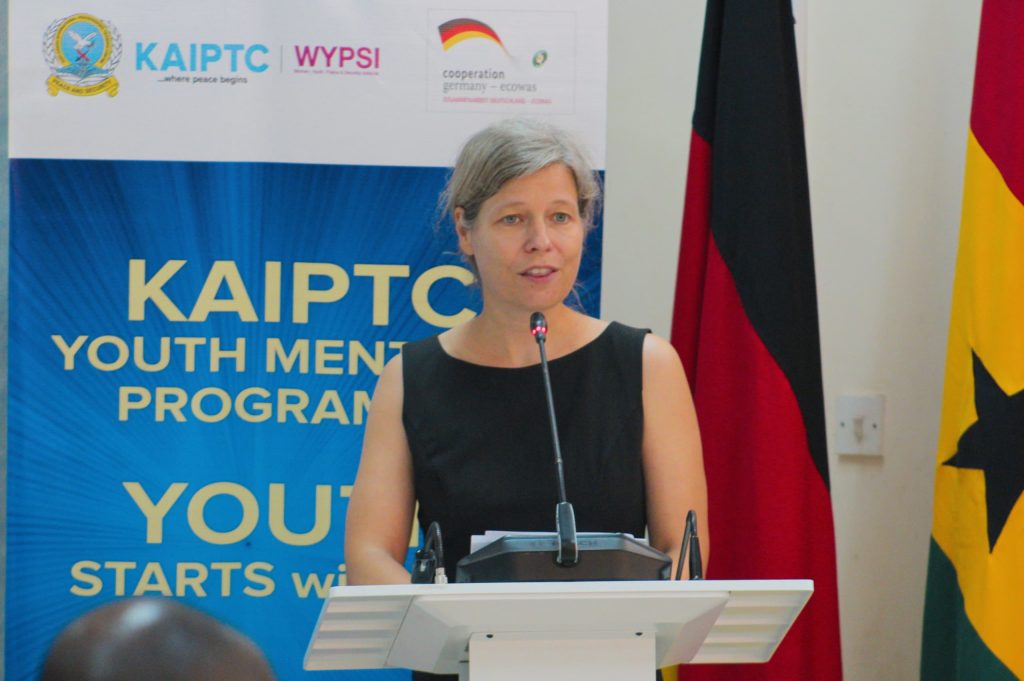By James Amoh Junior, GNA
Accra, Sept. 25, GNA- Staff of the Kofi Annan International Peacekeeping Training Centre (KAIPTC) have begun a youth development programme to advance the Youth, Peace and Security (YPS) Agenda of the Centre.
The initiative, dubbed “YOUTH STARTS WITH YOU”, is designed to empower and mobilize young Africans to actively contribute to the Youth, Peace, and Security (YPS) Agenda for sustainable peace and security in Africa.
The Programme, supported by the German Government through the ECOWAS Peace and Security Architecture and Operations Programme implemented by GIZ, recognises the pivotal role of youth in shaping the future towards enhancing both internal and external capacities related to the YPS Agenda.
The Youth, Peace, and Security (YPS) Agenda, rooted in UN Security Council Resolution 2250, underscores the significance of involving young people in fostering peace, preventing conflict, and ensuring sustainable development.
The programme, therefore, aligns with those principles and seeks to create a platform for youth engagement, mentorship, and expertise development with a particular focus on building the internal capacity at the KAIPTC while extending impactful training opportunities to young actors across Africa.
Structured to encompass knowledge management, mentorship, virtual courses, and targeted training for young YPS experts, the programme fosters a holistic approach to youth development within the realm of peace and security.

At the end of the estimated 12-month “YOUTH STARTS WITH YOU” development programme, the capacities of staff (KAIPTC Youth Mentors), youth actors, and Young YPS Experts would have been built.
Air Commodore David Anetey Akrong, Deputy Commandant, KAIPTC, in an inaugural address said, mentorship was an integral asset to the professional and personal development of individuals, particularly young people.
He said, “It fosters an environment where knowledge is transferred, talents are nurtured, and guidance is provided to those who are still finding their way in their careers and life.”
This process, the Deputy commandant, said was not just about imparting skills but creating a legacy of excellence, empowering others to unlock their potential, and ensuring that values held dear at the KAIPTC continued to drive the world into the future.

Air Cdre Akrong noted that the programme would provide tools, techniques, insights on how best to engage, inspire and mentor young staff, interns, and trainees in a meaningful way.
“It will equip you to be not only role models, but also pillars of support in their growth chains. Like the old saying, charity begins at home,” he stressed.
He observed that the young professionals of the Centre represented the future of KAIPTC, and that it was the responsibility of management to ensure that they were well prepared to carry forward its mission of promoting peace and security in Africa.
“By fostering a culture of mentorship within the Kofi Annan International Peacekeeping Training Center, we are reinforcing the very foundation of our institution. We are investing in a future where the values, expertise, and institutional knowledge of the KAIPTC are embodied in everyone who walks through our doors,” the Deputy Commandant said.
Air Cdre Akrong said in a fast-evolving field of peace and security, it was essential that young professionals were guided by those with wisdom and experience.
Therefore, he stated that the mentorship programme aimed to create strong and lasting relationships between their senior staff and the younger members of the centre and that it would ensure that core values and standards remained high as the Centre grew and adapted to new challenges in the peacekeeping field.

Ms. Teresa Kraft, Head of Component, GIZ, who expressed delight at the start of the programme, said the upscaling of the KAIPTC Women, Peace and Security Institute and its inclusion of a Youth, Peace and Security component, was welcoming hence the partnership and support from the German Ministry of Economic Cooperation and Development.
“Most prominently, I am proud of our partnership in supporting the development of a National Action Plan on Youth Peace and Security, “she said Ms. Kraft said the security situation in the Region was deteriorating and concerns were rising over the possible spill-over of insecurity from the Sahel in coastal states and even Ghana.
She said, “The growing, energetic, impatient and – at times – visionary youth population of West Africa is an essential stakeholder for peace and conflict, for fragility and resilience.”
Thus, Ms Kraft said, empowering youth meant nurturing young people and giving them opportunities to grow, adding that opening spaces, where the youth could bring in their ideas and priorities was key.
GNA